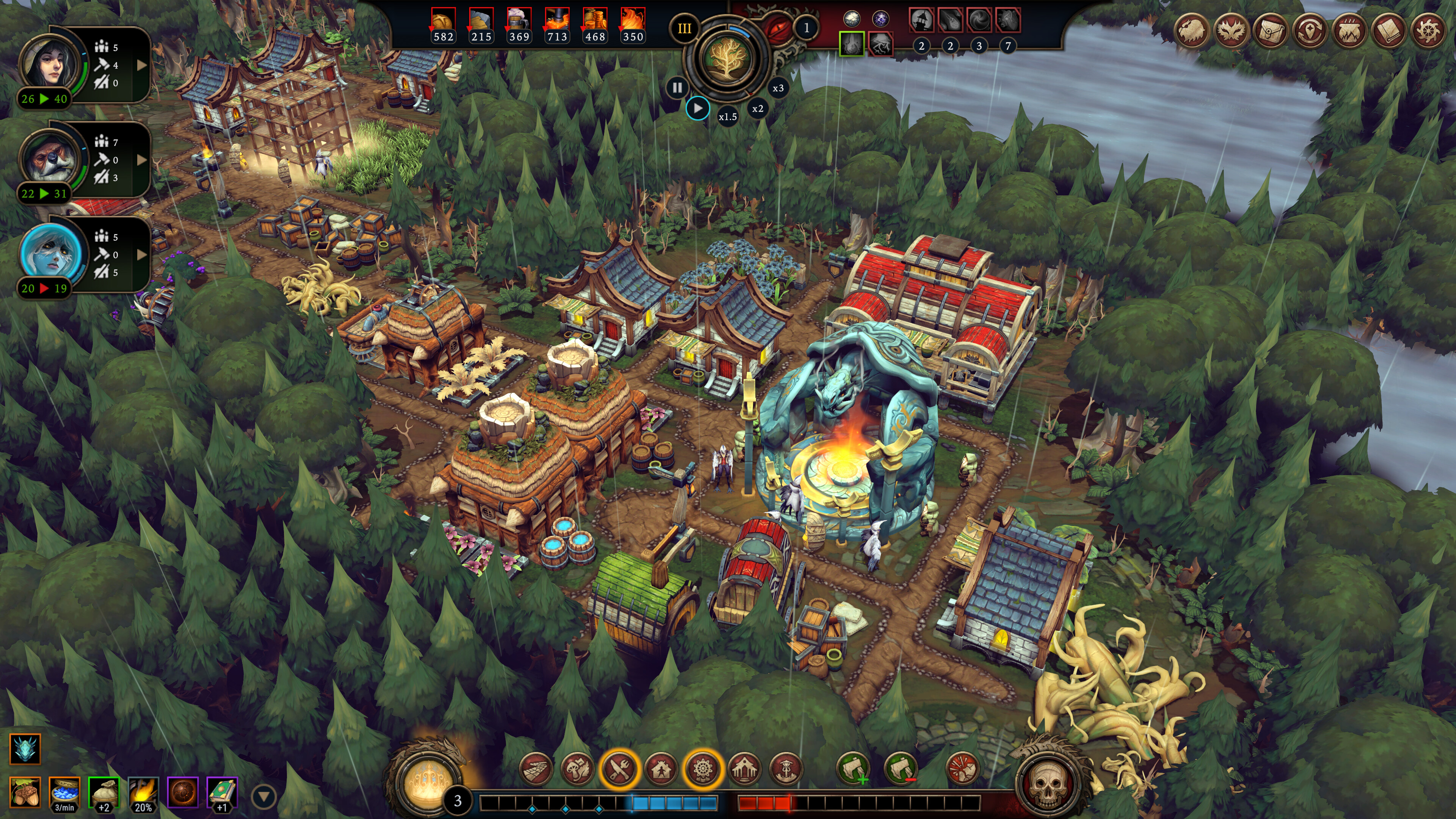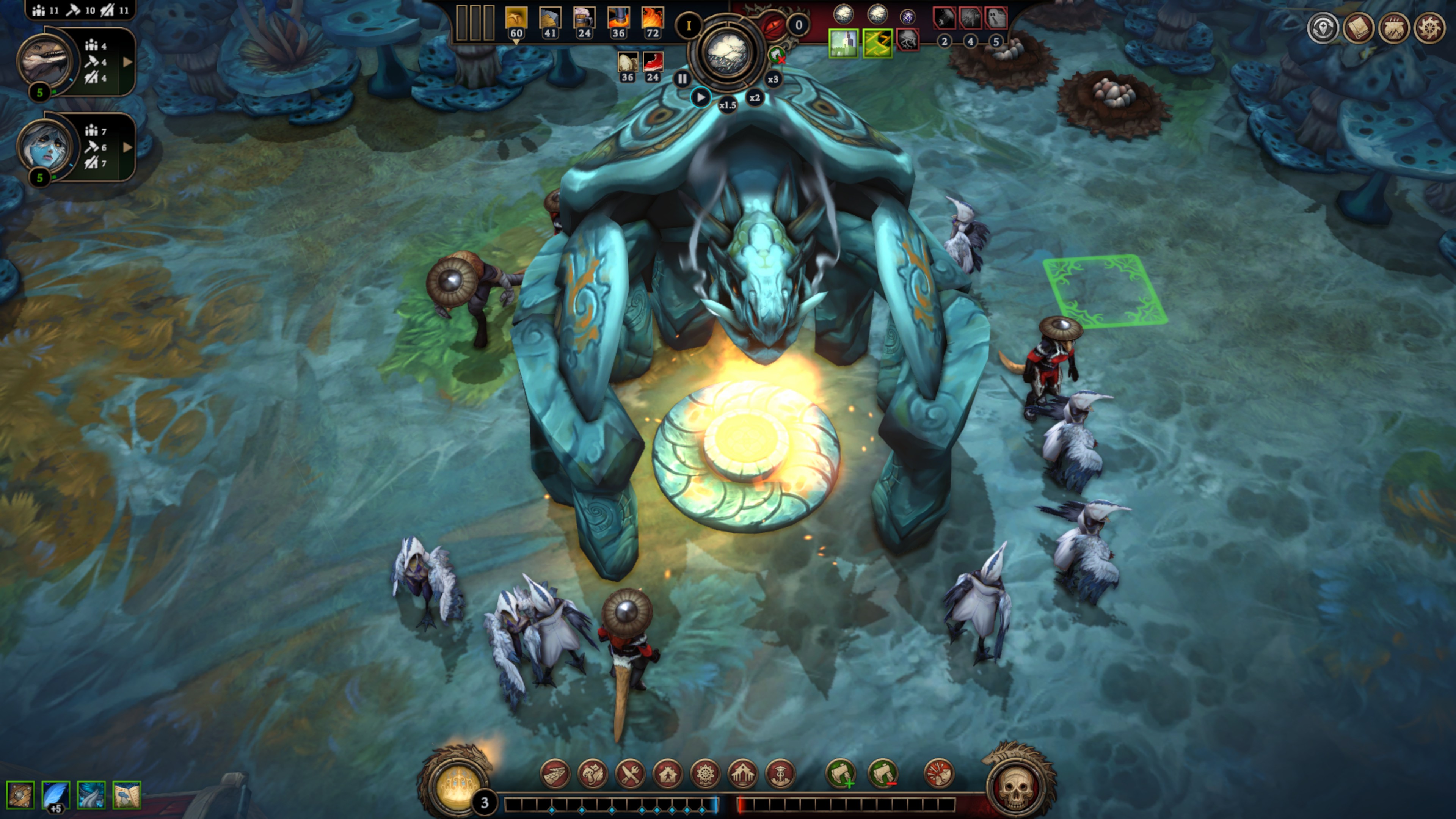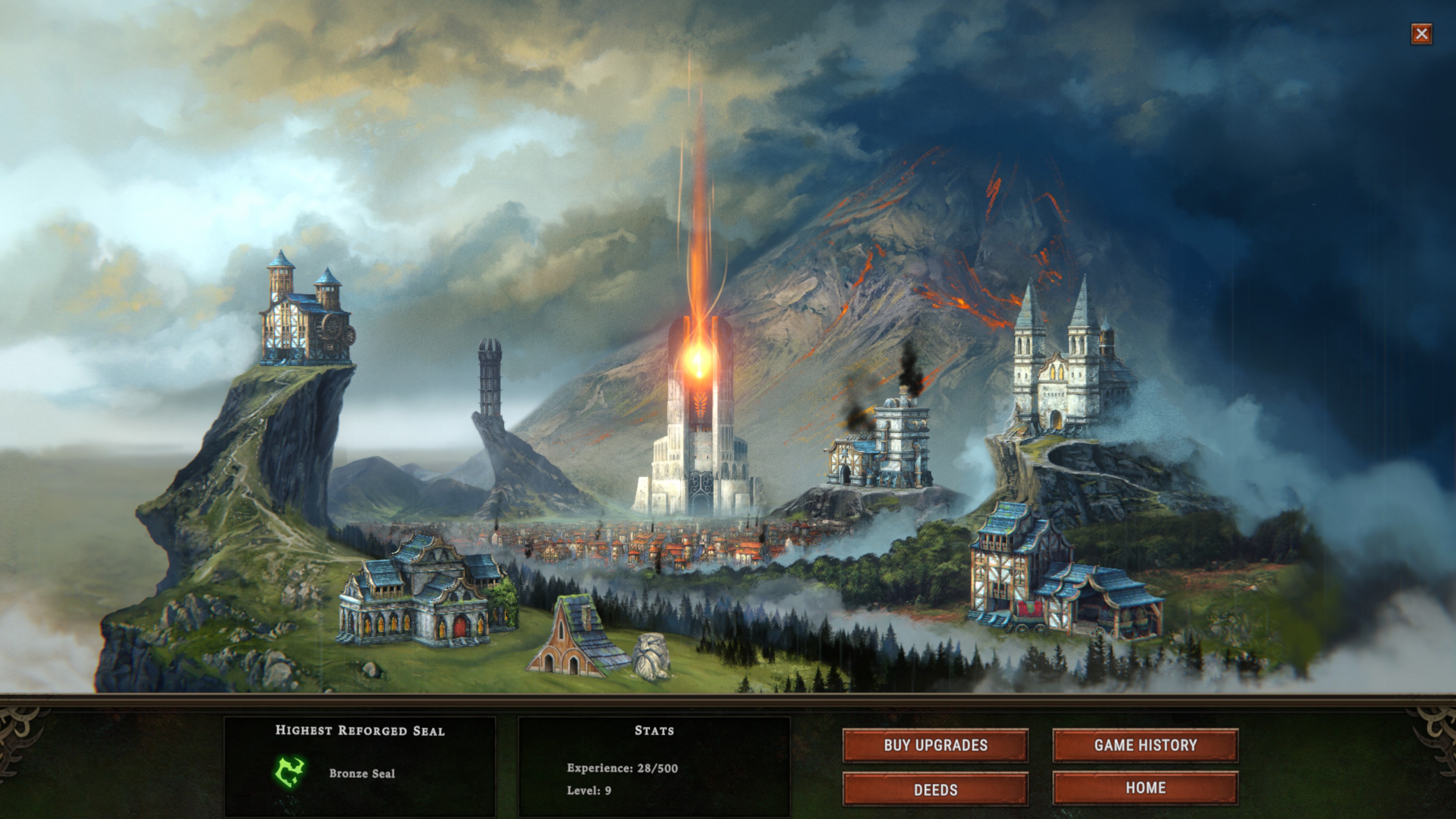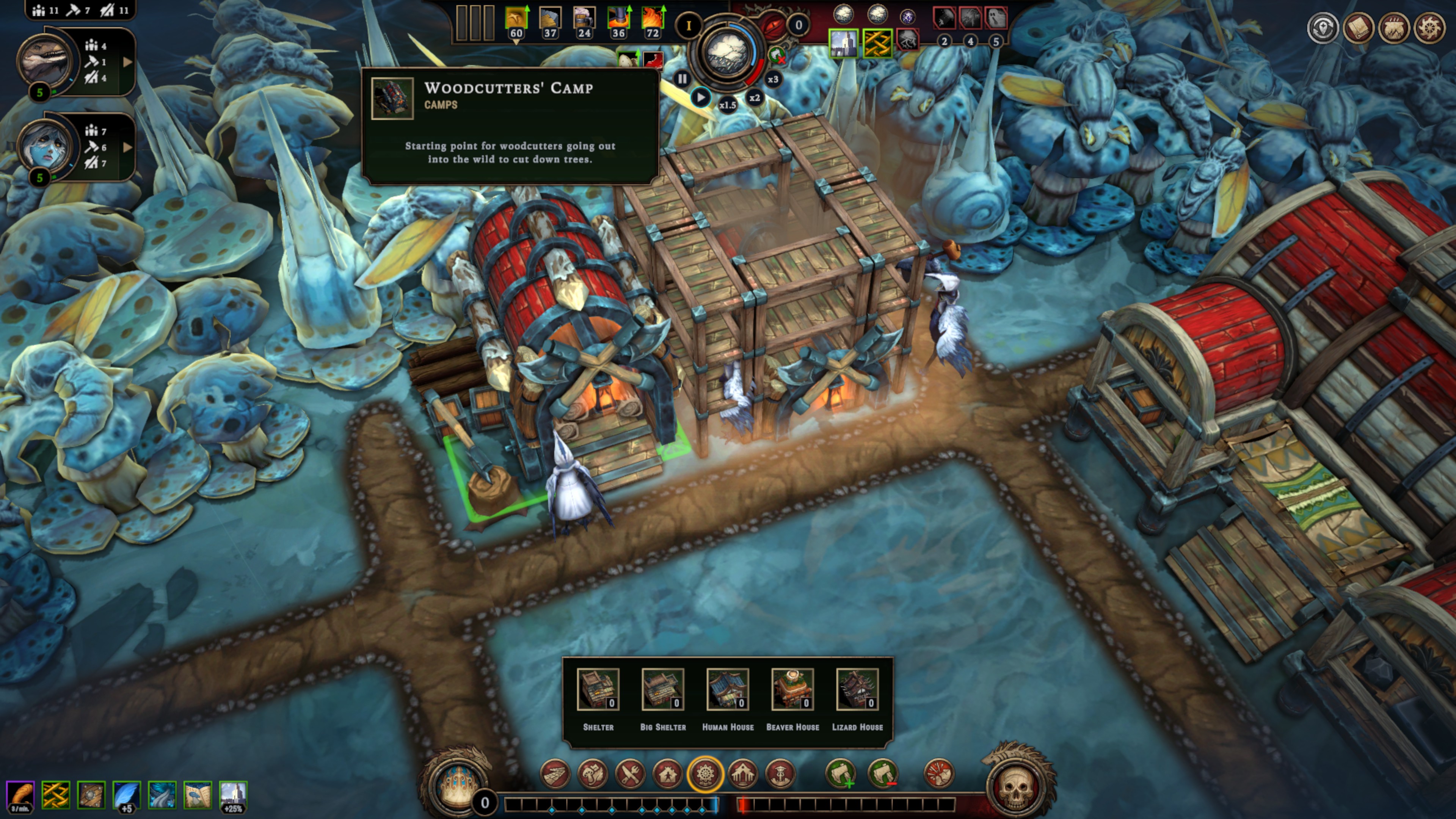Our Verdict
Against the Storm is a well-designed, charming, enthralling roguelike city builder.
PC Gamer's got your back
What is it? A roguelike city builder about making the best of a doomed world.
Expect to pay £25/$30
Release date Dec 8, 2023
Developer Eremite Games
Publisher Hooded Horse
Reviewed on Windows 10, Ryzen 7 3700X, RTX 3080, 32GB RAM
Steam Deck Verified
Link Official site
The basic idea baked into a city builder is that I'm creating something to last. Every street, every house, every decoration is placed with care to craft cozy neighborhoods and shopping areas where people will live and thrive, theoretically forever. So when Against the Storm presented me with the premise that each of my handmade habitats would be wiped away by a terrible tempest as part of an unavoidable, cataclysmic cycle, I wasn't sure how to feel about it. But what has revealed itself in the puddles left over when the clouds clear is one of the most clever, engaging, and endearing strategy games I've played in years.
In the world of Against the Storm, some kind of horrifying, magical disaster has turned the once-idyllic fantasy countryside into a rain-soaked, ruin-strewn morass in which everything outside of the magically-shielded capital, The Smoldering City, is annihilated by hurricane-force gales every year. As the Queen's viceroy, your job is to set out during the brief windows during which the land is traversable to found productive settlements that will take you closer to a set of mysterious seals. By completing these seals, you will permanently lengthen the storm cycle and draw closer to understanding what happened.
Each new settlement site comes with a varied set of possible positive and negative modifiers, which could be anything from a ghostly presence that randomly kills unhoused villagers to a creepy species of tree that also gives you meat, in addition to wood. I'm sure it's fine. While keeping the central hearth fire lit at all costs, you send your intrepid humans, beavers, lizards, and other anthropomorphized animals out to chop through the woods and discover new glades while collecting resources to build houses, workshops, and decorations.
While the strong silhouettes and low polygon count of its models, buildings, and trees can evoke a bright, fairy tale wonderland, the dangers that lurk between the branches are more like the original Brothers Grimm stories. It's not a completely bleak game, but it can be very challenging to manage its competing pressures. Central to everything are two meters measuring the Queen's grace and her impatience. Filling the grace meter first signals that you have essentially won the map, and can set out from this foothold to reach further into the gloom and start another. But maxing out her impatience means the expedition is deemed a failure and recalled, and the time you've spent there won't get you any closer to a seal.
Impatience simply rises over time, but grace can only be earned by completing semi-randomized missions and keeping your villagers happy. Everyone needs food and a house. But each of Against the Storm's races also has more specific desires as you move up Maslowe's hierarchy. This doesn't only create an interesting balancing act, but also adds a delightful bit of personality to each race. Beavers, for instance, are fancy little lads who love tea parties and a good vintage of wine. They're also quite hard to please. Lizards, on the other hand, delight in munching on beef jerky and engaging in recreational combat. It's rare to be able to please all of the species in your settlement, so you usually have to choose which ones to favor. But the more pampered any one group gets, the harder they become to satisfy over time.
Downpour
Fulfilling these needs becomes an engaging resource puzzle, especially since the blueprints you receive for workshops and industrial buildings are also semi-randomized. Everyone loves pie and biscuits, but if you simply don't have a mill to make flour this run, you're completely out of luck in the baked goods department. Some things can be obtained in limited quantities from roaming traders, but it's impossible to ever fall into a comfortable routine due to not knowing which resources and which buildings will be available. Against the Storm is always challenging me to adapt, and I really enjoy that.
At the same time, cutting deeper into the woods—which is required to keep fuel in the hearth, find food, and complete objectives—increases the hostility of the forest. This looming air of wilderness menace, which freaks everyone out a bit, also goes up passively the longer you spend in one place, which makes it harder to keep everyone safe and satisfied. Even cutting your way into a new glade increases hostility by a little bit, so there's an additional tension related to how fast you want to expand. It seems like all of these layered considerations would become overwhelming, but in motion they fit together beautifully and prompt you to constantly be making interesting, meaningful decisions.
Keep up to date with the most important stories and the best deals, as picked by the PC Gamer team.
Even when I'm not able to land on my feet, I'm rewarded for my time in some small way. The Smoldering City offers a towering long-term progression tree in which you use resources gained from each expedition, win or lose, to unlock benefits from small percentage increases to stats like villager speed, to new blueprints that can completely change how you set up an economy. This small amount of incremental progress, assuring me that my next expedition will always be just a bit better equipped than my last, has been a great motivation to keep going even if I hit a bit of a slump. And I also love the fact that certain blueprints can eventually be added to your permanent starting kit at the higher levels. Roguelikes that simply add more cards to the deck of things you can draw often feel lackluster in the progression department, and this is a compromise that resolves the issue nicely.
I've already poured dozens of hours into Against the Storm and reforged the Bronze Seal, the first of six. And I barely feel like I'm getting started, having unlocked about a quarter of the Smoldering City's upgrades. Rainpunk mechanics that let you harness the storm to industrialize your production, higher difficulties that feature something of a fire department mechanic, and tougher seals that can be best described as multi-stage boss fights, still await me. And I'm thrilled every time to pull on my boots and get out into it again. This isn't just a great city builder. It's really something special.
Against the Storm is a well-designed, charming, enthralling roguelike city builder.
Len Hafer is a freelancer and lifelong PC gamer with a specialty in strategy, RPGs, horror, and survival games. A chance encounter with Warcraft 2: Tides of Darkness changed her life forever. Today, her favorites include the grand strategy games from Paradox Interactive like Crusader Kings and Europa Universalis, and thought-provoking, story-rich RPGs like Persona 5 and Disco Elysium. She also loves history, hiking in the mountains of Colorado, and heavy metal music.





